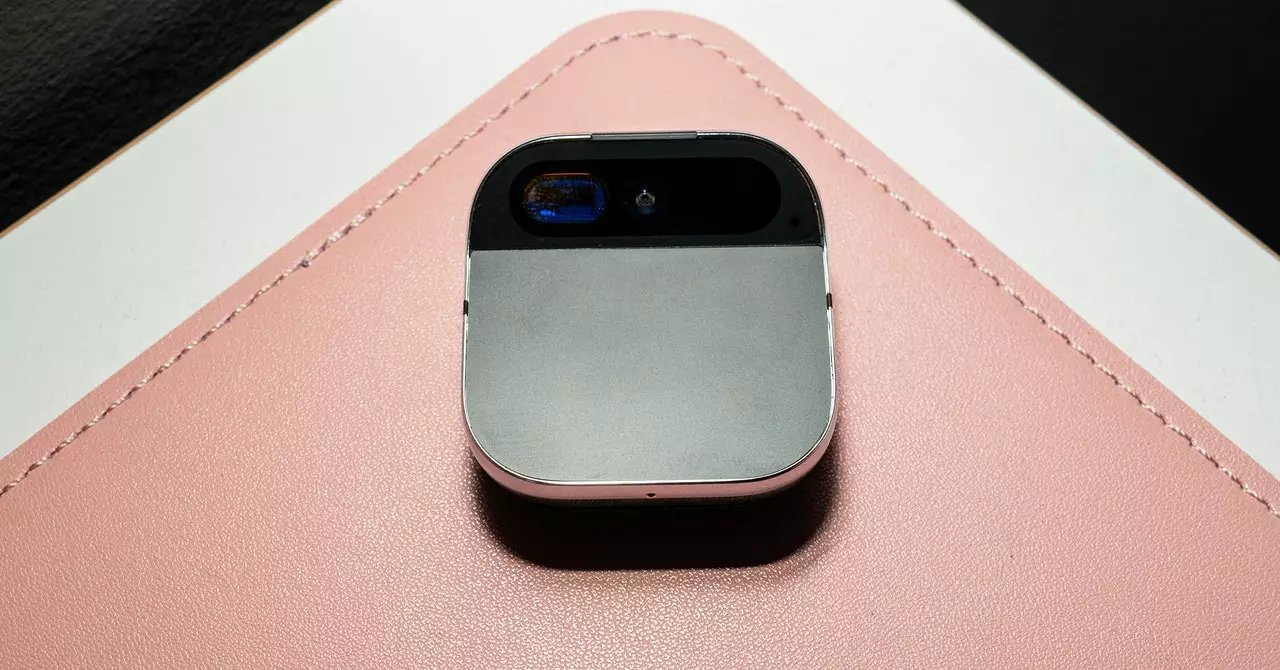The tale of Humane’s AI Pin, once heralded as the next breakthrough in wearable technology, has reached a definitive conclusion this week. Humankind’s lust for innovation is frequently balanced by reality, and this case exemplifies the stark contrast between initial excitement and eventual disappointment. With HP’s recent announcement of a $116 million acquisition deal for several of Humane’s assets—alongside its Cosmos operating system and a trove of patents—one might wonder how a product with such promise crumbled so quickly. This article dissects the trajectory of the AI Pin and its implications for the tech industry.
The acquisition by HP, a giant in the technology sector primarily known for its printers and computers, comes as no surprise. HP will absorb more than 300 patents from Humane, along with some key personnel, including co-founders Imran Chaudhri and Bethany Bongiorno. Despite this infusion of intellectual property, HP has openly expressed a lack of interest in continuing the production of the AI Pin hardware. Instead, the focus seems directed at integrating the Cosmos operating system into HP’s existing line of products to enhance user experience and unlock new functionalities.
Yet, this deal bears the marks of a salvage operation rather than a glorious merger. The AI Pin, launched with grand ambition late in 2023, was not just an ordinary gadget; it was marketed as a revolutionary alternative to the smartphone, integrating AI technology directly into a wearable device. Unfortunately, the reality of the device did not meet the eager expectations set by both the media and consumers.
The AI Pin: Promises Unfulfilled
When the AI Pin was unveiled, it was dubbed as Silicon Valley’s next big thing—a cutting-edge gadget clad with a ChatGPT-powered assistant and a laser projection display. However, the glowing forecast quickly dimmed once the product made its market debut in early 2024. Initial reviews unearthed a litany of issues that rendered the device nearly unusable: overheating problems, an unreliable AI that frequently provided incorrect information, and a projector that seemed more annoying than useful. The promise of a smartphone replacement evaporated in the face of overwhelming critique.
As sales dipped sharply, Humane faced the unavoidable conclusion of refunding sales made just prior to its shutdown announcement. The device was rapidly rendered obsolete, raising questions about consumer trust and the brand’s long-term viability. Users who purchased the AI Pin prior to designated cutoff dates found themselves at a loss, both financially and technologically—posing a quintessential failure of market execution.
Humane’s downfall provides critical lessons for the tech industry, particularly regarding innovation and market delivery. First and foremost, the tech sector must temper innovation ambitions with rigorous testing and feedback. Launching a product without addressing core functionality raises significant risks—not just to the brand but to consumer confidence in emerging technologies.
Moreover, a schism between marketing and actual product experience has emerged as a frequent downfall for tech products. When companies overhype their creations, consumer expectations can overshoot reality, leading to disappointment akin to that experienced with the AI Pin. Brands must cultivate transparency and honesty in their messaging to sustain consumer goodwill, particularly in a competitive market.
Amidst the fallout surrounding the AI Pin, HP aims to leverage what remains of Humane’s technological endeavors to weave AI deeper into its ecosystem. The company’s goal to form an innovation lab named HP IQ marks an attempt to create a more sustainable strategy for incorporating AI into consumer products beyond consumer-facing wearables.
As HP charts a new course with Cosmos at its helm, the industry watches closely. This experience serves not only as a cautionary tale for budding innovators but also as a reminder of the volatile nature of consumer technology. While the appetite for advanced AI applications remains robust, alignment between vision, execution, and consumer desire will determine the future success of such initiatives.
Humane’s AI Pin saga illustrates an essential story within the tech industry—one that speaks to the dual nature of innovation and caution. As we move forward in an age dominated by rapid technological advancement, it is imperative that developers, marketers, and consumers remain grounded. The transition from hype to reality must be managed deftly to avoid repeating the pitfalls that brought down a once-promising product. Ultimately, the narrative of the AI Pin serves as a lesson in balancing ambition with accountability within a dynamic tech landscape.

